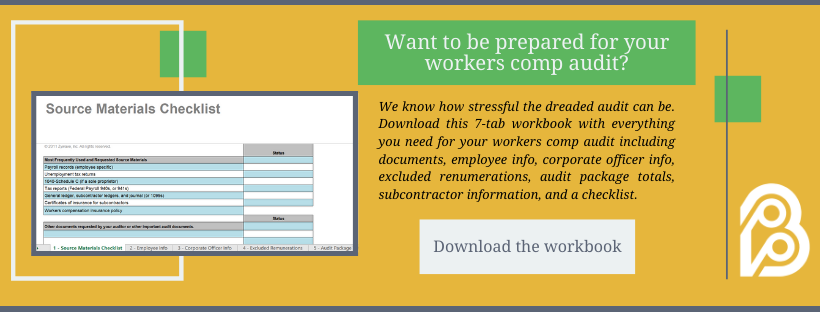COVID-19 and Workers’ Comp: What if Employees Become Infected?
Business Insurance | business | Learning Center | coronavirus | Workers Compensation | Community | Safety Tips
By now we’ve all heard of it: the coronavirus.
For the past few months, the virus (which causes the disease COVID-19) has been rapidly spreading around the world, including within the United States. In fact, as of now, nearly 600 people in the United States have been confirmed infected since the first U.S. case was confirmed on January 20.
While the Centers for Disease Control and state Departments of Public Health are working to stop the spread and prepare for a potential outbreak, organizations across the world are taking precautions and implementing plans to prevent the illness from affecting their employees and business.
At Berry Insurance, we provide hundreds of businesses with insurance to protect their employees … plus, we have employees of our own, so we are thinking about what would happen if employees were to become infected and unable to work.
For one, would they be covered by workers’ compensation?
This isn’t a straight-forward question to answer, but let’s talk about what workers’ compensation usually covers and when it may and may not cover coronavirus-related claims.
What does workers’ compensation cover?
Workers’ compensation insurance covers medical payments and a portion of lost wages for employees who become injured or ill due to work-related causes.
If an employee gets injured lifting something heavy or slipping and falling on a wet floor, medical expenses and some lost wages would be covered by workers’ compensation.
If an employee becomes ill from being exposed to harmful chemicals on the job, that would also be covered by the insurance.
In Massachusetts, all businesses are required to have workers’ compensation insurance for their employees. Without coverage, employees could sue their employer for injuries or illness sustained on the job.
Are those infected with coronavirus eligible for workers’ compensation?
When considering workers’ compensation and how it relates to coronavirus, that’s when things become murky.
Typically illness can be covered by workers’ compensation if the employer exposes the employee to some sort of substance, chemical, or allergen that makes them ill, but when it comes to viruses, it’s not as straightforward.
When an employee files a workers’ compensation claim, the insurance company will only cover if the injury or illness is proven to be work-related based on factors such as the time, location, and activity that caused the injury or illness.
In terms of coronavirus, proving the illness was contracted due to work can be difficult, but those who work directly with the public, specifically in the healthcare field, or travelled to infected areas for work may have a case.
All employees and employers who feel they may be exposed to the virus at work should keep detailed records of any potential exposures to strengthen their chances of being covered by workers’ compensation.
Employers should also report any suspected work-related coronavirus incidents to the insurance company immediately.
All workers’ compensation claims are evaluated individually and either approved or denied depending on whether it is determined to be work-related.
How should employers protect their employees from coronavirus?
Since workers’ compensation likely will not cover coronavirus in most situations, it is important that both employers and employees make efforts to stop the spread of the illness so it does not affect their business.
Employers should maintain a safe, healthy environment and have a plan in place in case of coronavirus exposure, taking into account CDC guidelines.
At this time, the CDC encourages employers to:
- “Actively encourage sick employees to stay home:
- Employees who have symptoms of acute respiratory illness are recommended to stay home and not come to work until they are free of fever (100.4° F [37.8° C] or greater using an oral thermometer), signs of a fever, and any other symptoms for at least 24 hours, without the use of fever-reducing or other symptom-altering medicines (e.g. cough suppressants). Employees should notify their supervisor and stay home if they are sick.
- Ensure that your sick leave policies are flexible and consistent with public health guidance and that employees are aware of these policies.
- Talk with companies that provide your business with contract or temporary employees about the importance of sick employees staying home and encourage them to develop non-punitive leave policies.
- Do not require a healthcare provider’s note for employees who are sick with acute respiratory illness to validate their illness or to return to work, as healthcare provider offices and medical facilities may be extremely busy and not able to provide such documentation in a timely way.
- Employers should maintain flexible policies that permit employees to stay home to care for a sick family member. Employers should be aware that more employees may need to stay at home to care for sick children or other sick family members than is usual.
- Separate sick employees:
- CDC recommends that employees who appear to have acute respiratory illness symptoms (i.e. cough, shortness of breath) upon arrival to work or become sick during the day should be separated from other employees and be sent home immediately. Sick employees should cover their noses and mouths with a tissue when coughing or sneezing (or an elbow or shoulder if no tissue is available).
- Emphasize staying home when sick, respiratory etiquette and hand hygiene by all employees:
- Place posters that encourage staying home when sick, cough and sneeze etiquette, and hand hygiene at the entrance to your workplace and in other workplace areas where they are likely to be seen.
- Provide tissues and no-touch disposal receptacles for use by employees.
- Instruct employees to clean their hands often with an alcohol-based hand sanitizer that contains at least 60-95% alcohol, or wash their hands with soap and water for at least 20 seconds. Soap and water should be used preferentially if hands are visibly dirty.
- Provide soap and water and alcohol-based hand rubs in the workplace. Ensure that adequate supplies are maintained. Place hand rubs in multiple locations or in conference rooms to encourage hand hygiene.
- Visit the coughing and sneezing etiquette and clean hands webpage for more information.
- Perform routine environmental cleaning:
- Routinely clean all frequently touched surfaces in the workplace, such as workstations, countertops, and doorknobs. Use the cleaning agents that are usually used in these areas and follow the directions on the label.
- No additional disinfection beyond routine cleaning is recommended at this time.
- Provide disposable wipes so that commonly used surfaces (for example, doorknobs, keyboards, remote controls, desks) can be wiped down by employees before each use.
- Advise employees before traveling to take certain steps:
- Check the CDC’s Traveler’s Health Notices for the latest guidance and recommendations for each country to which you will travel. Specific travel information for travelers going to and returning from China, and information for aircrew, can be found at on the CDC website.
- Advise employees to check themselves for symptoms of acute respiratory illness before starting travel and notify their supervisor and stay home if they are sick.
- Ensure employees who become sick while traveling or on temporary assignment understand that they should notify their supervisor and should promptly call a healthcare provider for advice if needed.
- If outside the United States, sick employees should follow your company’s policy for obtaining medical care or contact a healthcare provider or overseas medical assistance company to assist them with finding an appropriate healthcare provider in that country. A U.S. consular officer can help locate healthcare services. However, U.S. embassies, consulates, and military facilities do not have the legal authority, capability, and resources to evacuate or give medicines, vaccines, or medical care to private U.S. citizens overseas.
- Additional Measures in Response to Currently Occurring Sporadic Importations of the COVID-19:
- Employees who are well but who have a sick family member at home with COVID-19 should notify their supervisor and refer to CDC guidance for how to conduct a risk assessment of their potential exposure.
- If an employee is confirmed to have COVID-19, employers should inform fellow employees of their possible exposure to COVID-19 in the workplace but maintain confidentiality as required by the Americans with Disabilities Act (ADA). Employees exposed to a co-worker with confirmed COVID-19 should refer to CDC guidance for how to conduct a risk assessment of their potential exposure.”
How can employees protect themselves from coronavirus?
Regardless of coronavirus exposure risk, individuals of any profession should always practice general hygiene to avoid spreading any illnesses.
To avoid becoming sick, individuals should:
- Frequently wash hands with warm water and soap for at least 20 seconds
- Use hand sanitizer when soap and water aren’t accessible
- Avoid touching face, specifically mouth, eyes and nose
- Avoid contact with those who are sick
- Stay home if feeling sick and report any symptoms
- Practice coughing and sneezing etiquette
- Clean surfaces regularly
Stay informed and protected:
While at this time, risk is still low, it is important for employers and employees to both be informed and prepared.
While it is possible for workers’ compensation to cover coronavirus-related cases, for most, if the spread becomes serious, many employees could be home without pay, and employers could be understaffed, which certainly isn’t ideal for business.
Therefore, it is important to maintain general hygiene to prevent spread and closely identify and document any exposure risks in case you need to file a workers’ compensation claim.


.jpg)
